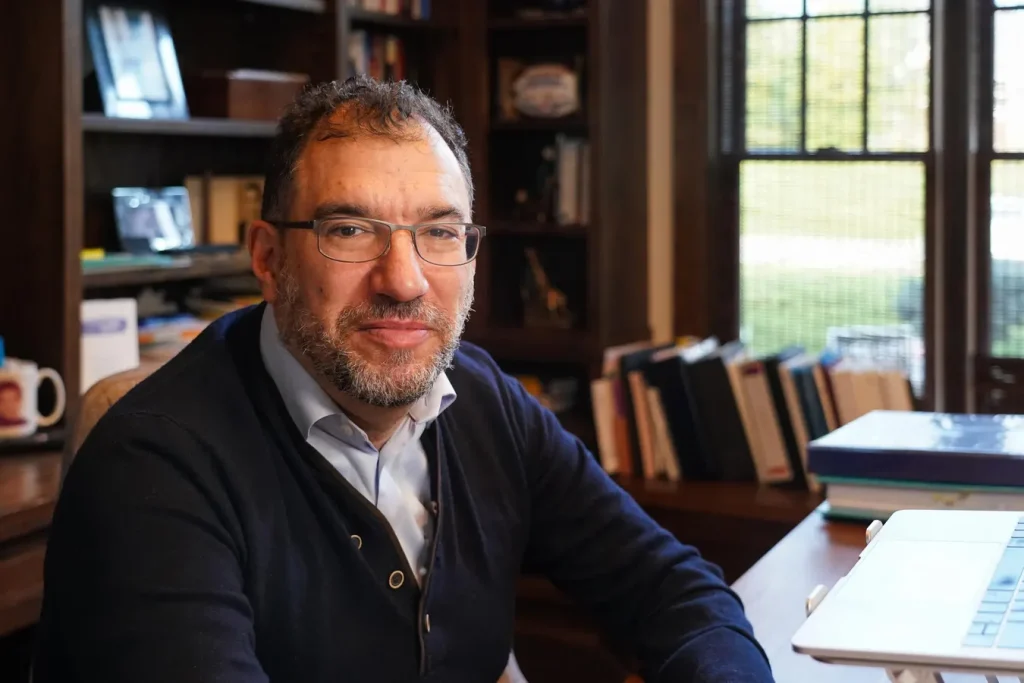Town Hall Ventures: Profitable Healthcare Innovation for Underserved Communities
In the competitive world of venture capital, Town Hall Ventures stands out with a unique mission: proving that healthcare innovations serving vulnerable populations can be both socially impactful and financially rewarding. Founded by Andy Slavitt, the former acting administrator of the Centers for Medicare & Medicaid Services known for his successful turnaround of healthcare.gov, Town Hall Ventures has defied conventional investment wisdom. “I’ve got a little bit of a chip on my shoulder,” Slavitt admits. “If investors think you are impact, they’ll put you in this bucket—people who do nice things and maybe some nice family office wants to invest in you because they’ve got an impact mandate. I have always resisted that.” This resistance to being pigeonholed as merely an “impact investor” has driven Slavitt and his partners to demonstrate that serving underserved communities can generate substantial returns, challenging the longstanding venture capital hesitancy to invest in low-income healthcare markets where Medicaid’s slim margins and patients’ complex social challenges have traditionally deterred investment.
Since its 2018 launch, Town Hall’s approach has yielded impressive results. The firm has invested in 35 companies and created seven others, including specialized care providers like Strive for kidney care and Suvida, which focuses on Hispanic seniors. Its first fund achieved top-decile performance with a net internal rate of return of 33% (through June 2023), significantly outperforming the median VC fund’s 12%. Ten of its investments have reached or exceeded billion-dollar valuations, including CityBlock Health (now valued at $8 billion), SignifyHealth (acquired by CVS for $8 billion), and Landmark Health (purchased by Optum Health for $3.5 billion). This successful track record has attracted significant investment, with Town Hall recently raising $440 million for its fourth fund, bringing its total assets under management to $1.4 billion. While still smaller than venture capital giants like Andreessen Horowitz or Sequoia, Town Hall has established itself as a respected healthcare investor, attracting backers like Kleiner Perkins chairman John Doerr, who has personally invested in every Town Hall fund. “I believed in what they said they were going to prove to do,” Doerr explained. “I think the healthcare industry has not been well served by the tech industry until now. They are a challenging customer and conservative institutionally. I see that changing in this moment.”
Town Hall’s investment philosophy reflects Slavitt’s fundamental belief that technology can address healthcare gaps in underserved populations. The firm’s approach stands in contrast to traditional venture investors who have historically avoided these markets. As Slavitt puts it, “It was very easy to describe the problem. It was very different to say capital and entrepreneurship and innovation is one of the cures. It’s one of the things we are good at in this country, so why not lean into it?” This perspective has led Town Hall to back companies like Marble Health, which provides virtual behavioral therapy for teens and accepts Medicaid insurance, and Habitat Health, a partnership with Kaiser Permanente that helps low-income older adults manage health concerns at home. Partner Meera Mani describes Marble Health’s founders as “relentless and ruthless” in their execution—a necessary quality for successfully navigating the challenges of serving Medicaid populations. Fellow partner David Whelan identifies the firm’s greatest strength as “the combination of mission and track record,” a dual focus that has proven attractive to both investors and entrepreneurs.
The firm’s reputation as a value-adding investor has made it an attractive partner for healthcare innovators, even when competing against higher offers. Robin Shah, cofounder and CEO of Thyme Care, a Nashville-based cancer care navigation startup, chose Town Hall despite receiving valuation offers $20 million higher than Town Hall’s bid. Shah convinced his board that Town Hall’s healthcare expertise and connections would be more valuable in the long run. That decision appears vindicated, as Thyme Care is now valued at $1.1 billion. “I don’t know if we would be there without Town Hall,” Shah acknowledges, highlighting how the partners’ industry knowledge and networks have accelerated the company’s growth. This type of endorsement from entrepreneurs suggests that Town Hall’s value extends beyond just financial investment to include strategic guidance and healthcare system navigation.
Despite being a critic of President Trump during his first term, Slavitt has found ways to work with changing political environments, recently becoming close with Dr. Mehmet Oz and serving as co-chair of the Health Care Payment Learning and Action Network. This public-private partnership aims to accelerate the transition from fee-for-service models to value-based care, where providers are paid based on patient outcomes rather than service volume. “With every administration, there’s going to be good things that happen and challenges that happen,” Slavitt notes pragmatically. He sees potential in the current administration’s focus on “innovation and data fluidity and being front-footed on AI and more focused on prevention and wellness.” While acknowledging that private sector innovation cannot fully compensate for policy changes that might increase the uninsured population, Slavitt believes technology can help reduce administrative barriers to maintaining coverage. “Technology doesn’t close the gap,” he admits. “I can’t lie and say that it does, but it’s going to help people.”
Looking ahead, Town Hall’s newly raised capital will allow it to continue investing in and scaling technology-enabled healthcare solutions. The firm has identified several focus areas with significant potential: home care for elderly adults, pharmacy and prescription drug management, and primary care. “These are really big markets and really big opportunities,” Slavitt observes. With the combination of expanding healthcare needs, technological advancement, and Town Hall’s proven investment approach, the firm appears well-positioned to continue demonstrating that serving vulnerable populations can indeed be both socially valuable and financially rewarding. As Slavitt notes about these opportunity areas, “if you can solve the problem well, you can build an extraordinarily big business.” Through this vision of aligned incentives between profit and social impact, Town Hall Ventures is helping reshape how venture capital approaches healthcare for America’s most vulnerable communities.





